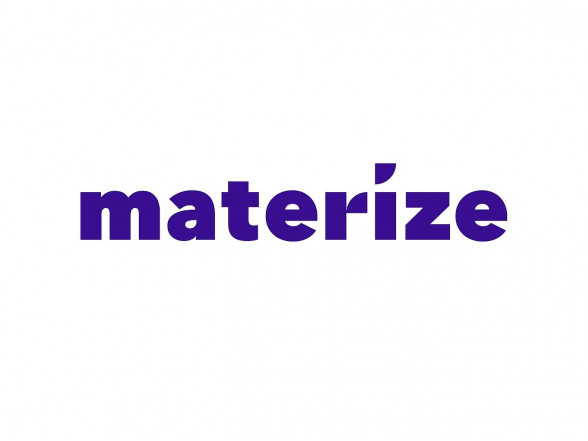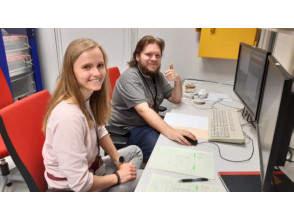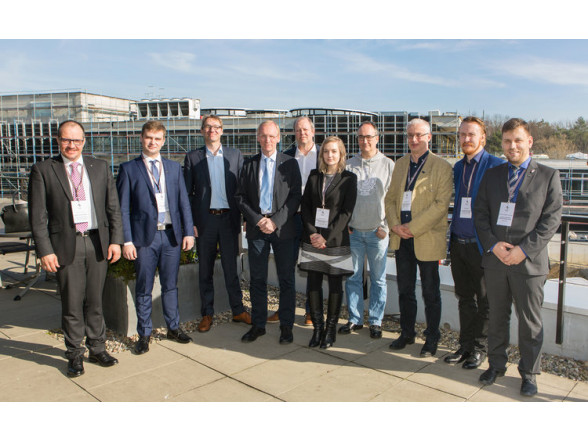On November 9, representatives from CAMART2 Industrial Outreach activities work package – Materize sales manager Olga Bogdanova and researcher Peteris Lesnicenoks together with National Research Program project LAGAS partner Riga Technical University (RTU) and Latvian Hydrogen Association, where ISSP UL is a member, had a meeting with SIA ZAAO recycling facility management: CEO, Technical director, Managing director and Innovation leaders about green infrastructure and green technology integration into their processes. The expertise of ISSP UL is Hydrogen technologies, whereas RTU’s expertise is energy grid solutions which both were a rich ground for discussions regarding the regionally planned investments into renewable infrastructure.
A short excursion around the facilities informed the participants about the recycling challenges and the technologies used. Due to the fact that a lot of the recycling is done by hand, it is important to provide clean and safe environment for the staff as well it is important to be responsible for the environment.
Mayor of local municipality of Aloja also joined the discussion as well as the representatives of moss (green resource) manufacturing industry all of whom are eager to provide cleaner solutions and be a smaller polluter while providing services or manufacturing products.
The discussion proved fruitful as there is was a mutual understanding that multiple technologies built into ecosystem can provide for all of the needs and the new EU green deal policies have set everyone on a course to become greener, be proactive and change things before the push of taxation has reached the local communities and make them act. It is vital to identify the local green energy ecosystems and help to establish them – this is where the Latvian Association of Local and Regional Governments (LPS) sees the main obstacle for green technology implementation nowadays – lack of proactive funding and consumer mentality. During the meeting, the problem was identified that Latvia does not produce almost any green technologies and is left a buyer of European-made solutions, although locally the same assembly could be done, the missing thing is a strong ecosystem for implementation of ideas.
The participants of the discussion agreed that it is vital to ignite high complexity green innovation entrepreneurship on the shoulders of municipal companies, who can provide open access data. Private sector is not able to provide fully open data thus the positive impact of green technology will be much harder to evaluate and prove to the society. Municipal companies and municipal planning regions have additional benefit – they are much smaller and need less funding to run pilots for novel technologies, that can later be integrated in the whole system.
This meeting made all of the participants see the acute need of scientist involvement in the industry and need for the government funding in order to carry out the first pilot studies, the first techno economical investigations and tech developments as soon as possible otherwise it might be too late and Latvia might be left as CO2 quota payer.



